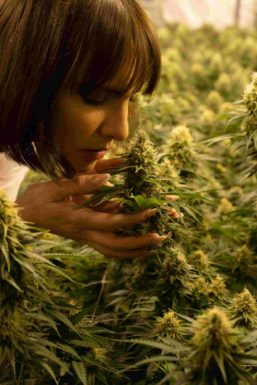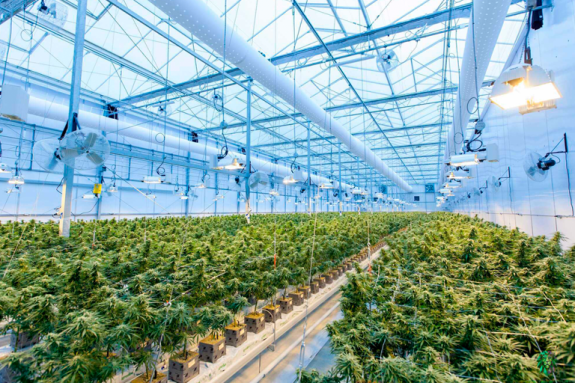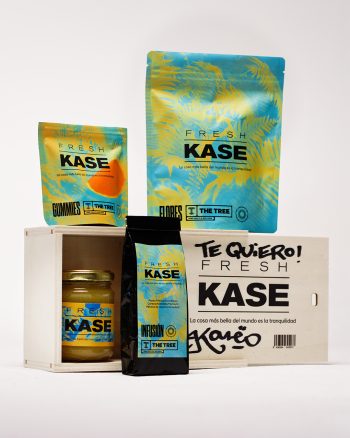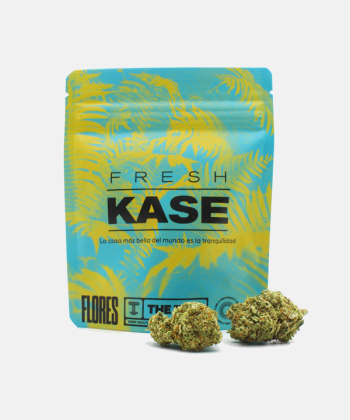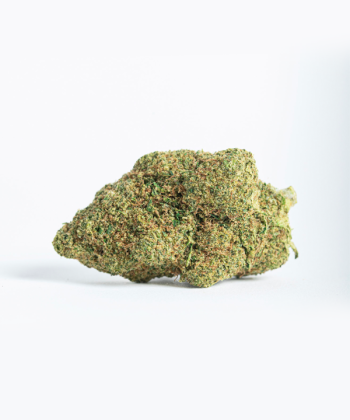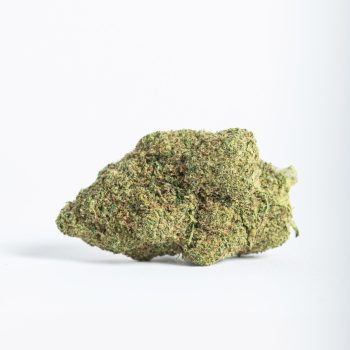THCV or tetrahydrocannabivarin is a minor cannabinoid that is part of the chemical family of compounds found in the cannabis plant. Like other compounds in this plant, it’s produced in resin glands known as trichomes, which are present in higher quantities in the flowers of female plants.
Unlike THC and CBD, THCV is found in traditional cannabis plants in quantities of less than 1%. For this reason, it’s classified as a minor cannabinoid, i.e. one that is produced in very low quantities.
In recent years, however, advances in cannabis breeding have made it possible to obtain plants that produce high levels of THCV through selective breeding. In other words, by crossing those plants that produced the greatest amount of this cannabinoid, breeders have managed to create strains that produce it in concentrations of around 15%.
Although it shares certain similarities with its better known relative, tetrahydrocannabinol or THC, THCV has unique properties that set it apart, such as its chemical structure and its effects on the body.
At the molecular level, this cannabinoid is slightly different from THC, as it has fewer carbon atoms. As for the effects, we’ll go through them in the following paragraphs, explaining what its main characteristics are and what distinguishes it from other cannabinoids.
Effects of THCV and interaction with the endocannabinoid system
As it is closely related to THC, due to the similarity of their chemical structures at the molecular level, many people wonder whether THCV produces intoxicating effects, i.e. whether it can get you high.
But not only does THCV not produce these unwanted effects, it also has the ability to modulate the effects of THC¹. It’s therefore a cannabinoid that has the potential to lessen the psychotropic effects of marijuana.
Like most cannabinoids, THCV exerts its effects due to its ability to interact with cannabinoid receptors in the mammalian body. These receptors make up the endocannabinoid system or ECS².
The ECS acts as an intercellular communication system, influencing many physiological processes and regulating a number of metabolic functions. It influences the appetite, sleep, mood, and the immune system, among other things³.
Potential benefits of THCV
As scientific research progresses, promising signs are emerging of the potential benefits that tetrahydrocannabivarin (THCV) could offer for human health and well-being.
Although much of this evidence is in its early stages and more research is needed, areas where THCV could have a positive impact are currently under investigation. Some of them are as follows:
- Body weight regulation: One of the most interesting aspects of THCV is its ability to influence the regulation of the appetite and metabolism. Studies in animal models have suggested that THCV may act as an appetite regulator, increasing satiety, which could be beneficial in treating weight-related problems and obesity.⁴
- Possible aid in managing diabetes: THCV’s ability to influence the metabolism has also attracted interest in the field of diabetes. Some research has shown that THCV may have an impact on the regulation of blood glucose levels and insulin resistance, although more research is still needed to fully understand these effects.⁵
- Neuroprotective properties: The possible role of THCV in protecting the nervous system has also been investigated. Some research has suggested that THCV may have neuroprotective properties that could be beneficial in the context of neurodegenerative diseases, such as Parkinson’s disease⁶. However, more research is needed to confirm these effects and determine their full extent.
- Anti-inflammatory and analgesic potential: THCV has also been shown to have anti-inflammatory and analgesic properties in preclinical studies⁷. These properties could be beneficial in treating chronic pain and inflammatory diseases, although more research is needed to understand how THCV can influence these processes in the human body.
Lastly, It’s important to stress that, while these potential benefits are very encouraging, research on THCV is ongoing and much work is still needed to fully understand its impact on human health.
Any potential use of THCV for therapeutic purposes should be undertaken in consultation with a medical specialist and should be based on solid and reliable evidence.
References
- McPartland, J. M., Duncan, M., Di Marzo, V., & Pertwee, R. G. (2015). Are cannabidiol and Δ9‐tetrahydrocannabivarin negative modulators of the endocannabinoid system? A systematic review. British journal of pharmacology, 172(3), 737-753.
- Grotenhermen, F. (2006). Cannabinoids and the Endocannabinoid System. Cannabinoids, 1(1), 10-14.
- Kim, H. Y., Ahn, S. H., Yang, I. J., Park, S. Y., & Kim, K. (2020). Effect of Hataedock treatment on epidermal structure maintenance through intervention in the endocannabinoid system. Evidence-Based Complementary and Alternative Medicine, 2020.
- Abioye, A., Ayodele, O., Marinkovic, A., Patidar, R., Akinwekomi, A., & Sanyaolu, A. (2020). Δ9-Tetrahydrocannabivarin (THCV): a commentary on potential therapeutic benefit for the management of obesity and diabetes. Journal of cannabis research, 2(1), 1-6.
- Ibid.
- García, C., Palomo‐Garo, C., García‐Arencibia, M., Ramos, J. A., Pertwee, R. G., & Fernández‐Ruiz, J. (2011). Symptom‐relieving and neuroprotective effects of the phytocannabinoid Δ9‐THCV in animal models of Parkinson’s disease. British journal of pharmacology, 163(7), 1495-1506.
- Bolognini, D., Costa, B., Maione, S., Comelli, F., Marini, P., Di Marzo, V., … & Pertwee, R. G. (2010). The plant cannabinoid Δ9‐tetrahydrocannabivarin can decrease signs of inflammation and inflammatory pain in mice. British journal of pharmacology, 160(3), 677-687.

